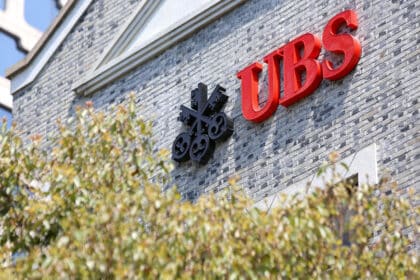The terms of the deal between the two banks mean that Credit Suisse shareholders shall receive 1 UBS share for every 22.48 Credit Suisse shares.
Major cracks appeared in the European Banking system last week as Swiss lender Credit Suisse reached the brink of default. This led the Swiss regulators to act in a state of emergency and prevent the looming banking crisis. On Sunday, March 19, after several back-and-forth discussions, the UBS Group announced its decision to acquire Credit Suisse in a $3.2 billion deal. This acquisition happened as part of the “emergency ordinance” to prevent any financial market instability.
The value that the UBS Group paid to acquire Credit Suisse was still a 60% discount from the bank’s $8 billion market cap as of March 17. The Swiss National Bank said that this acquisition has provided a solution “to secure financial stability and protect the Swiss economy in this exceptional situation”.
The Swiss National Bank, the Swiss Federal Department of Finance, and the Swiss Financial Market Supervisory Authority (FINMA) brokered the deal between the two banks. In order to support the takeover, the Swiss National Bank has pledged a loan of more than $108 billion. Furthermore, the Swiss government has guaranteed to assume losses of more than 9 billion Swiss francs from certain assets in “order to reduce any risks for UBS,” reads a separate government statement.
“This is a commercial solution and not a bailout,” said the Swiss Finance Minister Karin Keller-Sutter during a press conference on Sunday.
Details of the UBS-Credit Suisse Deal
The terms of the deal between the two banks mean that Credit Suisse shareholders shall receive 1 UBS share for every 22.48 Credit Suisse shares. As per UBS, the combined bank will now have $5 trillion of invested assets. Speaking on the development, UBS Chairman Colm Kelleher said:
“This acquisition is attractive for UBS shareholders but, let us be clear, as far as Credit Suisse is concerned, this is an emergency rescue. We have structured a transaction which will preserve the value left in the business while limiting our downside exposure. We are committed to making this deal a great success. There are no options in this. This is absolutely essential to the financial structure of Switzerland and … to global finance.”
Credit Suisse was already under deep waters as the bank was battling through a string of losses and scandals. The negative sentiment around it escalated quickly as some Wall Street banks announced shutdowns this month facing a similar situation.
The Credit Suisse stock has crushed investors’ wealth since it lost 90% of its value over the last month. As a result, the deal happened through the last weekend before the markets opened on Monday.
However, this rescue plan for Credit Suisse means a loss for the bondholders. The ATI bondholders have been left with nothing through the deal. On the other hand, shareholders, who sit in priority below the bondholders will still receive $3.23 billion under the UBS deal. As a result, some European regulators have expressed concern that this would undermine investor confidence in Europe’s financial sector.
next